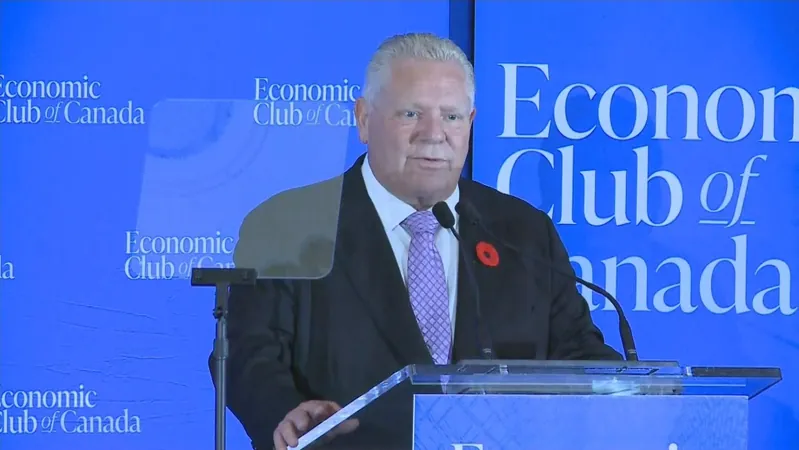
Doug Ford Unveils Major Funding for Ottawa Police and Asylum Seekers, Leaves Transit Needs Unmet!
2024-11-05
Author: Amelia
Introduction
In a recent visit to the capital, Ontario Premier Doug Ford announced millions in funding aimed at boosting police initiatives and supporting asylum seekers, but failed to address the pressing transit concerns raised by Ottawa's mayor. During his attendance at the Economic Club of Canada, Ford's remarks focused on public safety and homelessness rather than the critical transit funding that Mayor Mark Sutcliffe has been lobbying for amid a severe financial crunch in the city's transit system.
Ottawa’s Transit Financial Challenges
Ottawa OC Transpo is grappling with substantial financial challenges, projecting a $25 million deficit for 2024 and a staggering $120 million for 2025. Mayor Sutcliffe had hoped to secure financial support for these operations; however, the province's recent announcement unveiled a $48 million funding package directed solely at enhancing public safety measures.
Details on Funding Allocation
This funding will be disbursed over three years and is earmarked for various initiatives, including an increase in the presence of uniformed special constables on OC Transpo, outreach programs in downtown areas, and alternative mental health support systems. The Ottawa Police Service will also benefit through a hub located in the popular Rideau Centre.
Doug Ford’s Remarks
While unveiling the funding, Ford emphasized the need for collaboration with the federal government to further Ottawa's success, stating, "The new funding I announced today is a clear demonstration of our government's commitment to Ottawa's success." However, no mention was made of transit improvements or operational funding that the city desperately needs.
Funded Initiatives Overview
Among the funded initiatives are:
Transit Security Enhancements
Aimed at improving safety and reducing crimes within public transport systems.
Downtown Safety Outreach Partnership
Working with businesses and community organizations to foster a safer downtown atmosphere.
Alternative Mental Health Supports
This aims to implement non-police mental health crisis interventions for vulnerable individuals.
Special Constables Staffing Model
To allow for a more adaptable allocation of resources.
Mounted Patrol Unit
Improving police visibility in high-density areas to build community rapport.
Market Safe
Focusing on enhancing safety specifically within the busy ByWard Market area.
Community-Oriented Response and Engagement (CORE)
Aiming for a proactive community-policing strategy.
Mayor Sutcliffe's Concerns
Despite the provincial funding, Mayor Sutcliffe remains concerned about covering future OC Transpo deficits, suggesting that possible solutions may include hefty transit fare hikes or service cuts. "We need sustainable funding for transit going forward," he asserted, indicating a commitment to a long-term fairness campaign.
Support for Asylum Seekers
In addition to public safety funding, Ford pledged $40 million in support of emergency shelter operations to address an increase in asylum seekers in Ottawa. The city is considering the construction of temporary housing, known as “sprung structures,” to accommodate these individuals, though this has sparked controversy among local residents.
City Officials' Remarks
"The City is pleased with the progress made to date on the Ontario-Ottawa Agreement," city officials expressed, noting the comprehensive three-year, $120 million support deal that began in 2023.
Infrastructure Funding Concerns
Moreover, the "New Deal for Ottawa" unveiled early in 2023 includes an eye-watering $543 million for multiple infrastructure projects, which raises the question: Can a well-funded public safety sector adequately compensate for the glaring neglect of public transport in Ontario's capital?
Local Protests Against Funding Decisions
In a demonstration against Ford's government policies, local cyclists rallied, opposing a new proposal that would require municipal approval for bike lane constructions—prompting concerns about the future of cycling infrastructure in Ottawa.
Conclusion
The tension between local demands and provincial decisions continues to swirl, leaving many to ponder how essential needs like public transit will fare in this shuffle of funding priorities. As the city prepares for its draft budget meeting on November 13, the call for effective collaboration between all levels of government grows ever stronger. Will meaningful transit support emerge from this funding announcement, or will residents continue to bear the brunt of government inaction?
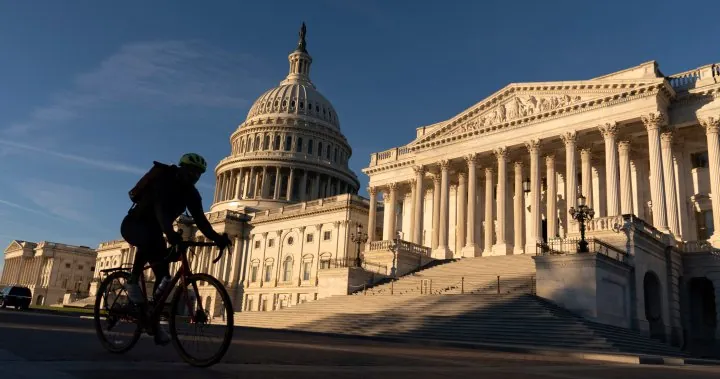


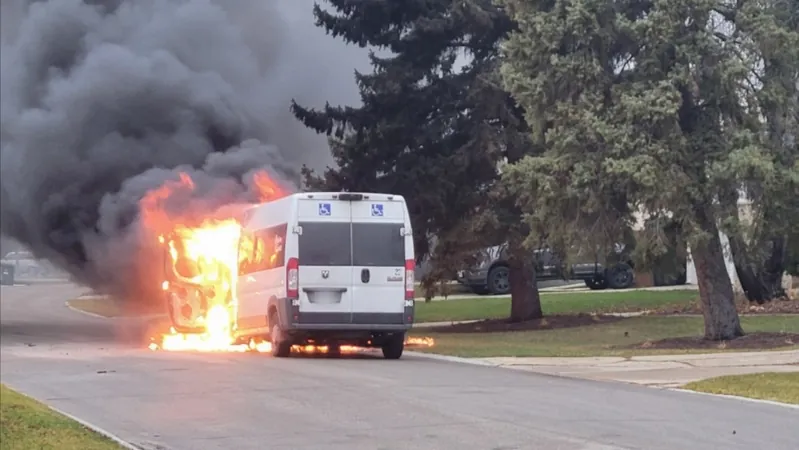
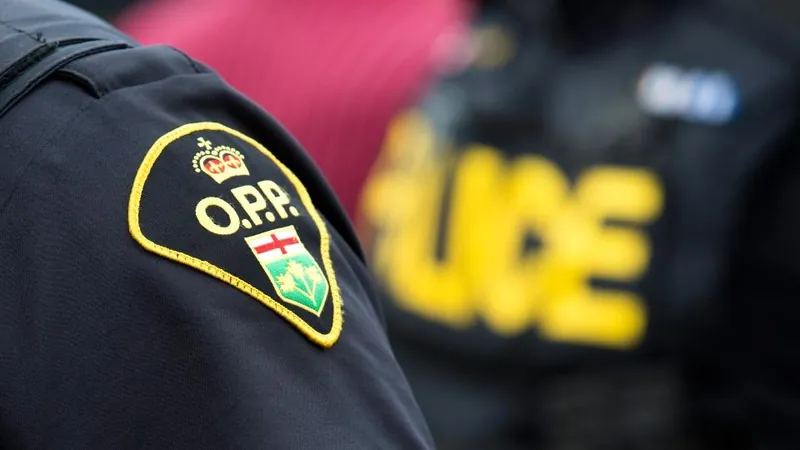



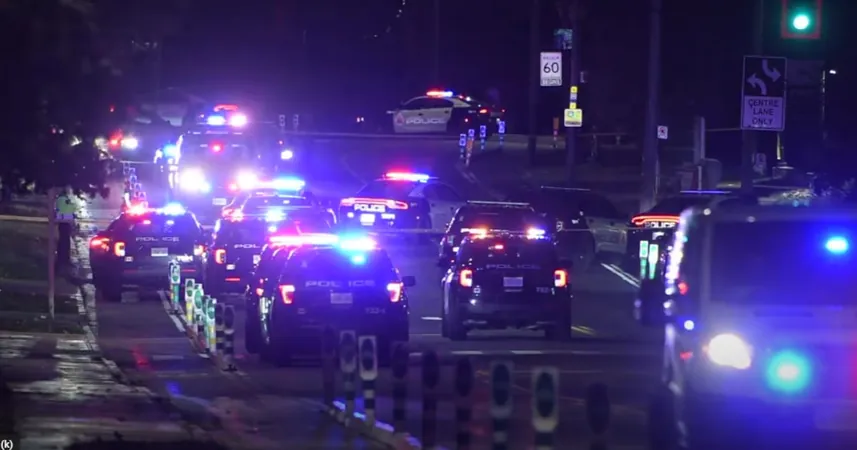
 Brasil (PT)
Brasil (PT)
 Canada (EN)
Canada (EN)
 Chile (ES)
Chile (ES)
 España (ES)
España (ES)
 France (FR)
France (FR)
 Hong Kong (EN)
Hong Kong (EN)
 Italia (IT)
Italia (IT)
 日本 (JA)
日本 (JA)
 Magyarország (HU)
Magyarország (HU)
 Norge (NO)
Norge (NO)
 Polska (PL)
Polska (PL)
 Schweiz (DE)
Schweiz (DE)
 Singapore (EN)
Singapore (EN)
 Sverige (SV)
Sverige (SV)
 Suomi (FI)
Suomi (FI)
 Türkiye (TR)
Türkiye (TR)